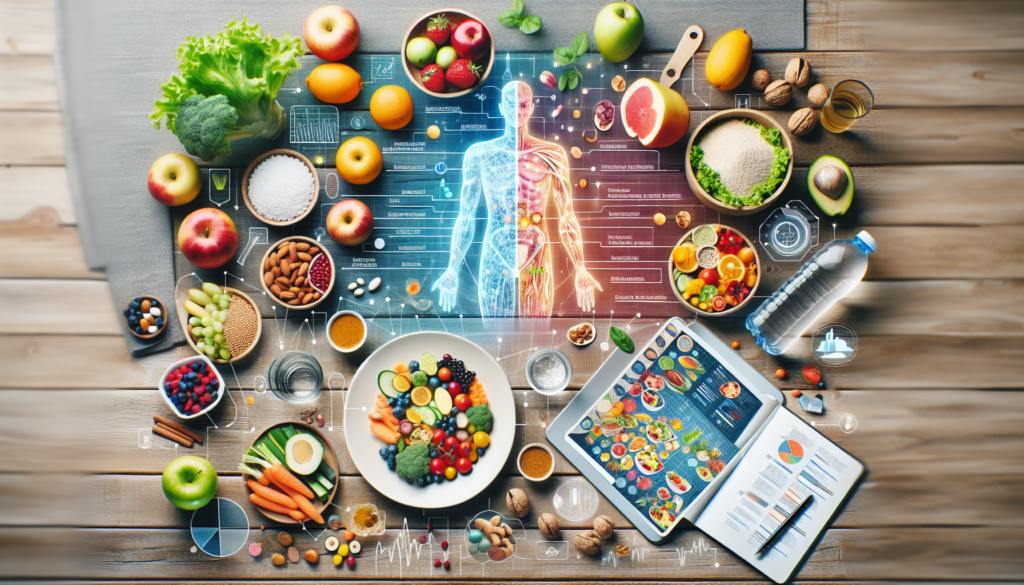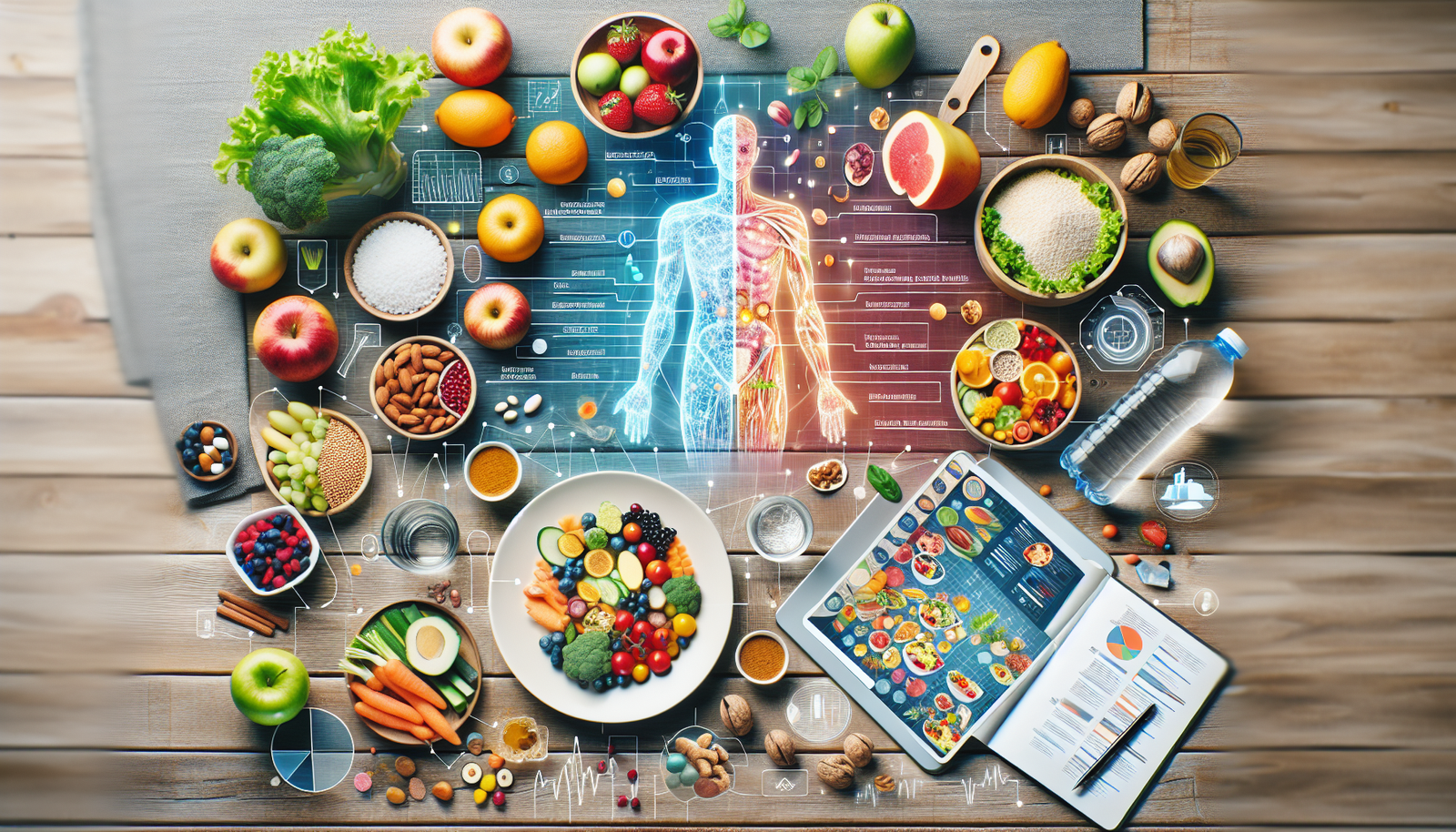Are you interested in learning about the powerful link between nutrition and hydration? Look no further! In this article, we will explore how these two essential components of a healthy lifestyle are interconnected. By understanding the connection between nutrition and hydration, you will gain valuable insights into how to optimize your overall well-being. So, grab a glass of water and get ready to embark on a journey that will leave you feeling refreshed, nourished, and informed. Get ready to discover the fascinating world where nutrition and hydration collide!

The Importance of Nutrition and Hydration
Fueling and Nourishing the Body
Proper nutrition and hydration are vital for maintaining our overall health and well-being. They play a crucial role in fueling and nourishing our bodies, ensuring that we have the energy and nutrients needed to perform daily activities and maintain optimal physical performance.
Dehydration and its Impact on Physical Performance
Understanding Dehydration
Dehydration occurs when the body loses more fluids than it takes in. This can happen due to various reasons, including excessive sweating, insufficient fluid intake, or certain medical conditions. Understanding the process of dehydration is essential to recognize its impact on our physical performance.
Effects of Dehydration on the Body
When the body becomes dehydrated, it can lead to a range of negative effects. These can include dizziness, fatigue, decreased cognitive function, muscle cramps, and even heat exhaustion or heatstroke in severe cases. Dehydration not only impairs physical performance but also affects our overall well-being.
Dehydration in Athletes
Athletes are particularly susceptible to dehydration due to their increased fluid loss during exercise. Even mild dehydration can have a significant impact on athletic performance, leading to reduced endurance, muscle fatigue, and decreased coordination. Therefore, proper hydration is crucial for athletes to perform at their best.
Nutrition for Hydration
Hydrating Foods and Beverages
While drinking water is the most obvious way to stay hydrated, our nutrition also plays a role in maintaining optimal hydration levels. Certain foods and beverages have a high water content, making them excellent choices for hydration. Fruits such as watermelon, oranges, and strawberries, as well as vegetables like cucumber and lettuce, are hydrating foods that can contribute to our fluid intake.
Importance of Electrolytes
Electrolytes, such as sodium, potassium, and magnesium, are minerals that play a vital role in maintaining fluid balance in the body. They are lost through sweat, especially during intense physical activity. Replenishing electrolytes through foods like bananas, coconut water, or sports drinks can help maintain hydration and prevent electrolyte imbalances.
Timing and Frequency of Fluid Intake
Timing and frequency of fluid intake are essential factors to consider when aiming to stay properly hydrated. It is recommended to drink fluids throughout the day, rather than waiting until you feel thirsty. By the time thirst kicks in, the body may already be mildly dehydrated. It is important to have a water bottle readily available and make a habit of sipping fluids regularly.
Good Hydration Practices
Recognizing Signs of Dehydration
Recognizing the signs of dehydration is key to taking prompt action and avoiding further complications. Common signs include thirst, dry mouth, dark-colored urine, fatigue, dizziness, and a decrease in urine output. By paying attention to these signs, you can address dehydration before it becomes severe.
Staying Hydrated Throughout the Day
In our busy lives, it can be easy to forget to drink enough fluids throughout the day. However, there are several strategies you can incorporate to ensure you stay hydrated. These include setting reminders or using hydration tracking apps, carrying a water bottle with you at all times, and making it a habit to drink fluids at regular intervals.
Hydration Strategies for Athletes
For athletes, specific hydration strategies are necessary to meet the increased fluid demands during training and competition. It is important to hydrate before, during, and after physical activity. This can involve consuming fluids containing electrolytes, monitoring body weight changes to estimate fluid losses, and planning fluid breaks during exercise sessions.

The Role of Water in Nutrient Absorption
Importance of Water in Digestion
Water plays a crucial role in the digestion process. It helps break down food, aids in the absorption of nutrients, and facilitates the removal of waste from the body. Without adequate water intake, our digestion may become sluggish, leading to constipation and other digestive issues.
Water and Nutrient Transport
Water serves as the medium for transporting nutrients throughout our bodies. It helps carry nutrients from the gastrointestinal tract to the cells, allowing for proper nourishment and optimal bodily functions. Sufficient water intake ensures that nutrients are effectively distributed to where they are needed.
Benefits of Proper Hydration for Nutrient Absorption
Proper hydration ensures that our bodies can effectively absorb and utilize the nutrients we consume. Without adequate hydration, our bodies may struggle to absorb essential vitamins, minerals, and other nutrients, leading to nutrient deficiencies and potential health issues. By staying properly hydrated, we enhance our body’s ability to absorb and utilize these important nutrients.
How Nutritional Intake Affects Hydration Status
The Impact of Macronutrients on Hydration
Macronutrients, including carbohydrates, proteins, and fats, all have some impact on hydration status. Carbohydrates, for example, require water for digestion and storage as glycogen in the muscles and liver. Proteins also contribute to fluid balance, while fats require minimal water for digestion. Optimal macronutrient balance is essential for maintaining proper hydration levels.
Influence of Micronutrients on Hydration
Micronutrients, such as vitamins and minerals, also play a role in hydration. For example, vitamin C is important for collagen synthesis, which supports healthy skin hydration. Minerals like sodium and potassium are crucial for maintaining proper fluid balance. A well-balanced diet rich in a variety of micronutrients contributes to overall hydration status.
Hydration and Weight Management
Water Retention and Fluid Balance
Proper hydration is crucial for maintaining fluid balance in the body, which can have an impact on weight management. When the body is dehydrated, it may retain water as a defense mechanism, leading to temporary weight gain. Staying adequately hydrated helps maintain fluid balance and supports healthy weight management.
Hydration’s Effect on Appetite
Proper hydration can also have an impact on appetite regulation. Thirst can sometimes be mistaken for hunger, leading to unnecessary calorie intake. By staying hydrated, we can better differentiate between true hunger and thirst, helping us make healthier food choices and manage our calorie intake effectively.
Hydration as a Weight Loss Aid
While hydration alone is not a direct weight loss tool, it can support weight loss efforts when combined with a healthy diet and exercise. Staying well-hydrated can help optimize bodily functions, including metabolism, digestion, and nutrient absorption, which are all important factors for successful weight loss.
Hydration for Special Populations
Hydration Needs for Pregnant Women
Pregnant women have increased fluid needs to support the growth and development of their baby. The body’s water requirements increase during pregnancy, and proper hydration is essential for a healthy pregnancy. Pregnant women should aim to drink plenty of fluids throughout the day and pay attention to their hydration status to ensure both their own health and that of their baby.
Hydration Considerations for Older Adults
Older adults may be at a higher risk of dehydration due to various factors, including decreased thirst sensations and medication use. They may also have additional health conditions that can affect their fluid balance. It is important for older adults to pay extra attention to their fluid intake, consume hydrating foods and beverages, and consult with healthcare professionals if any concerns arise.
Hydration Guidelines for Children
Children have unique hydration needs, as their bodies are still developing and have a higher water turnover rate compared to adults. It is crucial to ensure that children have access to water throughout the day, especially during physical activities. Encouraging healthy drinking habits from a young age sets the foundation for lifelong hydration practices.
Nutrition and Hydration for Exercise Recovery
The Role of Fluids in Post-Exercise Recovery
Proper hydration is essential for post-exercise recovery. During exercise, the body loses fluids through sweat, and replenishing these fluids is crucial for recovery. Consuming fluids, particularly those containing electrolytes, helps rehydrate the body and restore fluid balance after intense physical activity.
Optimal Nutrition for Recovery
In addition to hydration, proper nutrition is also essential for exercise recovery. Consuming a balanced post-workout meal or snack containing sufficient protein, carbohydrates, and healthy fats helps replenish glycogen stores, repair muscle damage, and stimulate muscle growth. Combining proper nutrition with hydration enhances exercise recovery and promotes overall wellness.
Rehydration Techniques
Rehydration techniques can optimize the replenishment of fluids and electrolytes after exercise. This can include consuming beverages with added electrolytes, such as sports drinks or electrolyte-enhanced water. Additionally, consuming foods with high water content, like fruits and vegetables, can aid in rehydration. Experimenting with different rehydration techniques can help find what works best for each individual.
Hydration Myths and Misconceptions
Myth: Only Thirsty People are Dehydrated
Contrary to popular belief, thirst is not always an accurate indicator of dehydration. By the time you feel thirsty, your body is already experiencing mild dehydration. It is important to consume fluids regularly, even if you don’t feel thirsty, to ensure proper hydration.
Myth: Coffee and Tea Dehydrate the Body
While coffee and tea are diuretics, meaning they increase urine production, they don’t have a significant dehydrating effect. The water contained in these beverages still contributes to overall hydration. However, it is important to balance the intake of caffeinated beverages with plain water to maintain proper hydration levels.
Misconception: Clear Urine Means You’re Properly Hydrated
Clear urine is often seen as a sign of proper hydration. However, urine color can vary depending on various factors, including the foods and medications you consume. Clear urine does not always indicate optimal hydration. Monitoring overall fluid intake, recognizing signs of dehydration, and ensuring regular fluid consumption are better indicators of proper hydration.
Maintaining proper nutrition and hydration levels is essential for optimal health and performance. By understanding the connection between nutrition and hydration, recognizing the signs of dehydration, and implementing good hydration practices, you can ensure that your body receives the essential nutrients and fluids it needs to thrive. Remember to prioritize hydration throughout the day, consume hydrating foods and beverages, and consult with healthcare professionals for personalized guidance on your hydration needs. Cheers to a well-hydrated and nourished body!

